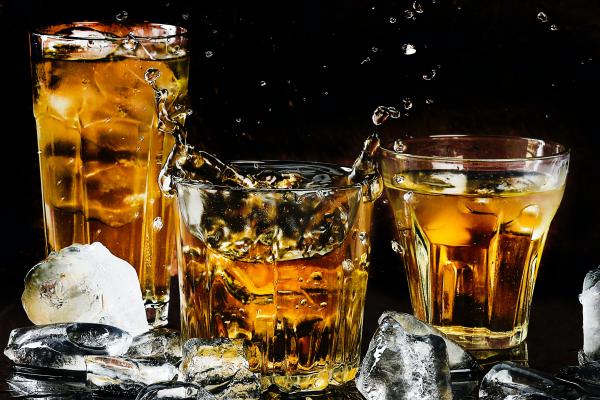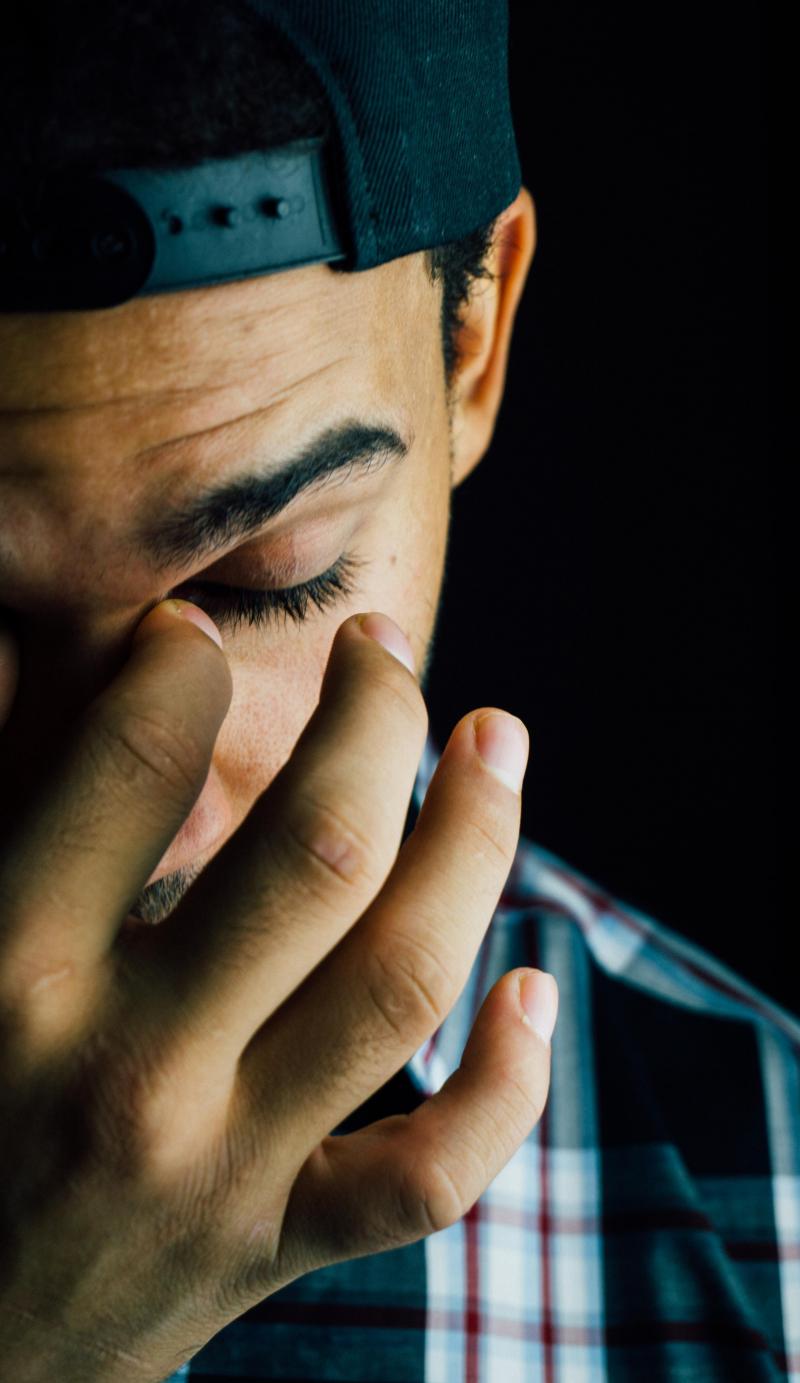Spiking
To spike someone's drink means to put alcohol or drugs into their drink without their knowledge or permission. Needle spiking refers to drugging with hypodermic needles.
I was given a shot and a while later I blacked out.

Did you know this?
Reports of drink spiking incidents in pubs, bars and clubs have been increasing. Needle spiking is a recent and still relatively unknown phenomenon. Spiking is often linked to crimes such as sexual assault and robbery. Every year in Belgium, there are about 50 reports of sexual assault after drink spiking – that's almost one victim per week. It is difficult to say exactly how big the problem is, as there is a very large hidden figure: many victims do not dare to report it (immediately). In fact, only 1 in 10 report it. Spiking is a criminal offence.
Why does spiking occur?
There are several reasons why someone may be spiking. The covert administration of alcohol or drugs may be intended as a 'joke', but it is also done to facilitate rape, sexual assault or sexual abuse. Because you have almost no inhibitions due to the drugs – and sometimes lose consciousness – the spiker takes advantage of your situation. Spiking is also sometimes done with the intention of robbing someone.
Whatever the motive, spiking is never funny. It can make a person extremely vulnerable and ill and have a lasting impact on their life and well-being.
How and where does spiking occur?
Spiking can happen anywhere: at a party, but also at housewarmings, pubs or restaurants.
The most common ways in which spiking occurs are:
- drink spiking: adding alcohol or drugs (legal or illegal) to a non-alcoholic drink, or extra alcohol to their alcoholic counterparts.
- needle spiking: administering drugs through a syringe. There is often no hard evidence afterwards.
It is also possible that someone gives you a drug but tells you it is a different dosage or a totally different drug. This is usually a drug that is prescribed or sold as a medicine.
Different drugs are administered:
- Party drugs: illegal drugs commonly used on nights out or at parties – for example ecstasy (also known as 'MD', 'MDMA', 'Pills', 'Mandy' or 'Molly'), ketamine, GBL or LSD.
- Date rape drugs: drugs that have become known for their use by people who commit spiking in order to rape, sexually assault or sexually abuse someone – such as Rohypnol or liquid XTC. Date rape drugs may come in powder, tablet or liquid form, and don't always have an unusual taste or smell.
- Prescription drugs: such as tranquillisers and opiates – for example Valium or Xanax.
Knowing whether your drink has been spiked is not easy. Many of the added substances are colourless and odourless. Therefore, order your drink yourself, never leave your drink unattended and keep an eye on your friends' drinks. Don't accept a drink from someone you don't know.
What spiking does to your body
Spiking has a direct effect on your body. One moment you feel very sober, and the next moment you can be completely out of it.
Common symptoms are:
- feeling ill or being sick
- feeling 'dizzy' or more drunk than expected
- feeling confused or disoriented
- being sleepy
- blurred or delayed vision, or difficulty seeing properly
- loss of balance or coordination
- having difficulty communicating
- hallucinations
- fainting
These symptoms may appear within 15 minutes, depending on what you ingest, and can last for several hours.
The drugs often also cause memory loss so that you may not remember exactly what happened to you or who the perpetrator was.
Date rape drugs are particularly dangerous when mixed with alcohol, because they combine to have a very powerful anaesthetic effect. In extreme cases, they can lead to a coma or even death.
Spiking often leads to psychological symptoms such as fear and shame, especially if abuse or rape is also involved. Victims often do not report the crime out of shame or fear of not being helped.

Spiking often leads to psychological symptoms such as fear and shame, especially if abuse or rape is also involved. Victims often do not report the crime out of shame or fear of not being helped.
The effect of spiking is not the same for everyone: it varies according to the nature and quantity of the drug administered and whether you have consumed alcohol or drugs beforehand. In addition, as a young person, you get under the influence faster and stronger because you are smaller, weigh less and are in a growth phase.
Without me realising, someone put drugs in my drink. I couldn't stand on my legs anymore.
Talk about it and seek help
Have you been a victim of spiking yourself? The first step is to make sure you are safe and that you can talk to someone about it. Tell someone around you right away that you are not feeling well – even if you feel ashamed.
Then have a blood and urine sample taken. You can take a urine sample yourself and keep it until you see a doctor, because some substances used as drugs do not stay in the body for long.

Has anyone crossed your boundaries sexually? Do you have questions about sexual violence or do you need a listening ear? Please call 1712 or visit the website 1712.be.
You can also contact Awel (102 or awel.be) or Tele-Onthaal (106 or teleonthaal.be). Drugline.be has experience with drugs and addictions. For questions about suicide or dark thoughts, you can call the Suicide Line (1813 or suicide1813.be).
What if you witness spiking?
It can make a world of difference to the person involved if you, as a witness, react.
You can do this by:
- Informing the staff of the bar or club.
- Taking the person to a safe place and staying with them. Talk so that he or she does not lose consciousness.
- Contacting the emergency services and police if the situation deteriorates, for example if he or she becomes unconscious.
- Taking the person home, and staying with them until their symptoms have subsided and the drugs have worn off.
- Making sure that the person does not leave with someone they do not know (well), including someone they had just met at the party, no matter how nice that person seems.
Worried about a friend?
Have you noticed a friend was confronted with spiking? You may be unsure of what to say or do. Openly discuss the problem, do not judge and share your concerns.
Keen to learn, read or hear more about the topic?
Podcasts
Self-help
- Helpline 1712 - for questions concerning any form of violence or abuse.
- Nu praat ik erover - chat box for minors and adults who have questions about or are victims of abuse, neglect or sexual violence (Dutch)
Reportages
- Drink spiking: why so little is known about this horrifying trend
- Needle spiking: what, how and why (Dutch)
Websites
- On the Drugline.be you will find tips on going out safe and sound. (Dutch)
- The Instagram page ‘Balance ton bar’ shares testimonies about abuse in Brussels bars (French)
Powerful stories
You are not alone. Get inspired by other students' stories about vulnerability and doubt. But above all about the power of connectedness.
Go to the stories